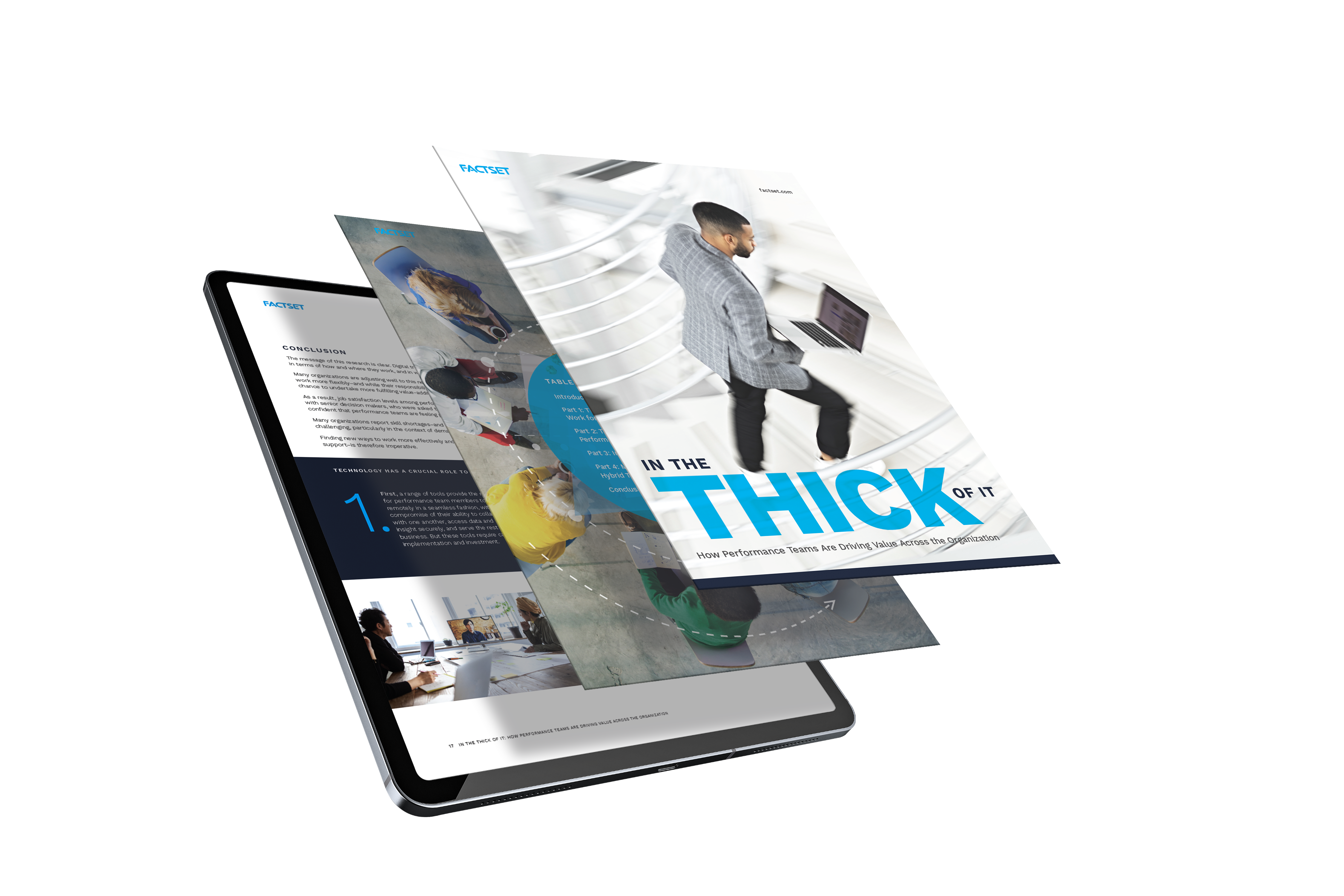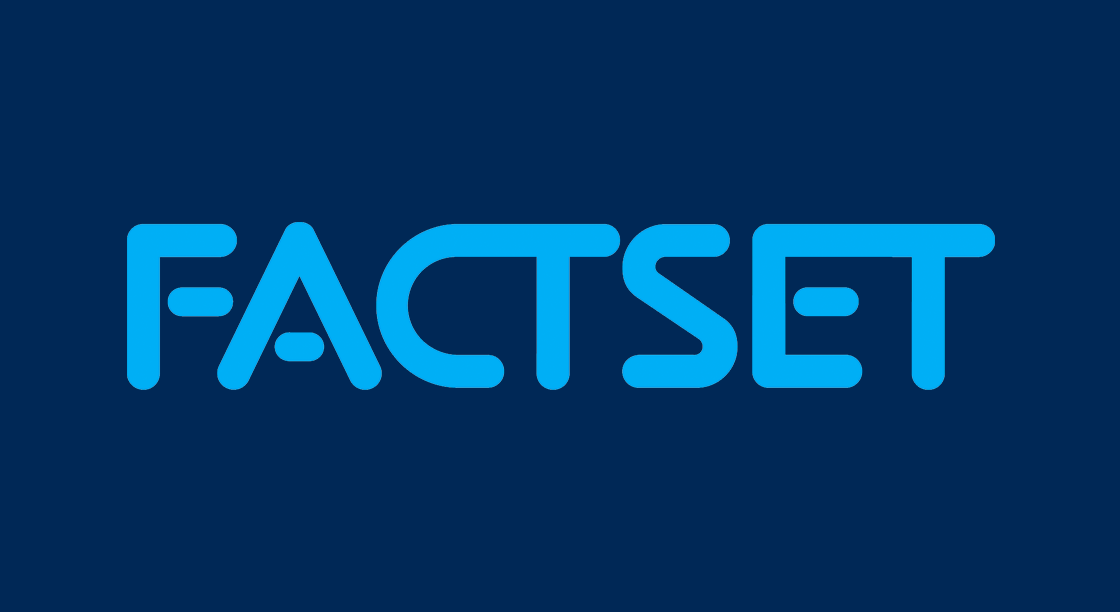Attendees at FactSet’s ninth US Investment Process Symposium this week were on hand to hear world renowned economists Paul Krugman and Glenn Hubbard look ahead to what we can expect under a Trump presidency, for trade, the economy, and beyond.
Krugman, whom The Economist has called the “most celebrated economist of our generation,” won the Nobel Memorial Prize in Economic Sciences in 2008 and served as Senior Political Economist on the President’s Council of Economic Advisors under Ronald Reagan.
Hubbard is the Dean and Russell L. Carson Professor of Finance and Economics at the Columbia Business School. From 2001-2003, he was the Chairman of the U.S. Council of Economic Advisors under President George W. Bush, and he served as economic advisor to the Mitt Romney Campaign in 2012.
Related: The Trump Economic Plan: Growth, Jobs, and Lower Taxes
The discussion was moderated by Brenda Tsai, Global Head of Marketing and Communications at FactSet. We share here some highlights of the conversation.
Q: It has been a rocky and unprecedented election cycle to say the least. As a result of the election, the Republicans will soon control the White House, the Senate, and the House. What policies or actions are most likely to happen? What kinds of economic reforms are we going to see with the Trump Administration?
Krugman: The first thing to say is that a lot of your assessment depends on what you think the politics are going to be, what Congress is going to want to be willing to do, and what Trump is going to be willing to do. We can guess big tax cuts — that’s part of the Trump promise and not something Congressional Republicans will object to. Those cuts are going to be very big; we’re looking at big numbers. Everything after that becomes really uncertain.
Hubbard: We don’t know. Neither side articulated much policy beyond a few broad themes. But I think a lot will happen and a lot will be in the Congressional work. The Republican Better Way agenda is as good a guide as any. The place to start is tax reform, especially business tax reform, and the agenda paves the way. In regulatory reform, I’m a little more skeptical that even a Republican president and Congress can pull off what they want. While I hear a lot of talk, I’m a little more skeptical of big changes.
You’ll see a lot of support for work, the earned income tax credit. Paul Ryan and Trump agree there. On infrastructure, the Trump plan is not well articulated, but it will pass. Entitlement reform is very unlikely to happen in the near term because the administration will put emphasis on growth first.
Q: As we all know, the market dislikes uncertainty. Given the unpredictable nature of Donald Trump, do you think we are in for four years of instability and uncertainty?
Hubbard: I can’t second guess why markets pop down and up. But if you look at what Trump and a GOP Congress are likely to do, starting with business tax reform, and look at the effect on equities, it wouldn’t require much math to realize that’s equity positive. If something ends badly I don’t think it will be tax reform; I think it will be protectionism.
Ronald Reagan said that “personnel is policy.” That remains a real wild card.
Krugman: I don’t much buy the markets don’t like uncertainty. When people say that they mean markets don’t like the substantial possibility of something terrible happening. We’re talking a real negative shock. For the moment, people have backed off that. I think that’s right; the fact of the matter is the initial effect of the tax cuts at least will be a substantial fiscal stimulus. The plans as laid out will be a fiscal stimulus every year that will be as big as the Obama stimulus was at its peak. That’s probably eventually going to end in grief.
The uncertainty concern is not so much the effects of the policies as the response when something else happens. Stuff happens. Stuff will always happen, and who will be there responding? The initial personnel choices are not wildly encouraging; they are not people you would think of as having any clue about these issues. Aside from the build-up of what’s likely to be extremely irresponsible policy on the fiscal side, we’re heading into an administration that fundamentally does not trust experts and is at war with the whole idea of expertise, and that will be a problem when something goes wrong as it always does.
Q: Trump has promoted a more isolationist view of global economic policy and trade. Can he be successful at isolating the US from the broader economy? If he is, what will the ramifications be for the US economy?
Krugman: Is it feasible? Can you shut down globalization? Yes, it’s happened before. We think of world trade as always growing but it actually did not get back, after World War I, till 1980 what it was in 1913. So you can have long periods where it doesn’t.
Politically if Trump were to actually start to do this stuff, he would find there are a lot more people that would be hurt: blue collar workers, large groups of businesses, whole chains of production. It would be much much more difficult, but I don’t know that it means it won’t happen. It’s a big possibility.
Hubbard: I don’t think it’s going to happen. On trade, we should remind ourselves how valuable trade and globalization is for reasons we teach in Economics 101. No economist ever stood up in 101 and said everyone in the country benefits from trade, but we do want to have trade. The bigger conversation is helping people who’ve lost from trade, but it’s not the dominant issue facing a lot of Donald Trump supporters. There are bigger changes from technology dislocating the labor force than from international trade, and you’re not going to ban all technology. So what are we going to do in the labor market to prepare people better and help those who have been left behind? I think Trump will be dragged to that discussion because he will rapidly see that will be the way to help that base of people.
Q: Despite a strong third quarter, the 2016 estimates for US growth are around 1.5%. The post-WWII average growth rate was 2.9%. Is our current growth rate sufficient? What are the biggest impediments to long term healthy growth?
Hubbard: In the short term, I think we see positive GDP growth. Long term is the interesting question. We don’t know nearly as much as we like to tell the public. We’re less good at predicting big increases in productivity. We can take away impediments for work, like the tax code. We know how to do that. There’s no silver bullet for productivity. And if we want to go back to days the economy would grow much faster, barring some technology change, I don’t think we will. But can it grow at 2.9%? Absolutely.
While we all do get older and demography is a big deal, we have seen a big decline in labor participation of men who are not old. That’s a disturbing drop off. We have a tax system that penalizes work for older Americans, and we have very high marginal tax rates on work for lower income Americans. So my view on work or productivity is not that I have silver bullets, but I want to take away a lot of the impediments. There’s a reason innovation and productivity changes happen at particular times, and that’s because they have institutions that support them. Will the Trump administration do that? I don’t know. But I know that Congress is there and Trump’s base is clearly there. So if you wanted to deliver a clear win for people who support Donald Trump, eliminating the estate tax is not the first thing you would pick.
Krugman: I don’t think there’s anything that would lead us to believe we could have policies that would drive us up to the average post war growth rate. Technology could, but it’s not going to be the result of what any government does. We could have a couple years of above trend with a demand-led boom, and some of that is likely to happen with the increased purchasing power of tax cuts.
Q: The Federal Reserve met in November and indicated that it is likely going to raise rates by a quarter-point in December. Some think they have waited too long to act. If right now, you were the Chairman of the Fed, what would you do?
Hubbard: I think we’ve asked too much of the Federal Reserve, and not just in this country. We’re going to be enter an environment where fiscal policy is going to play a different role than it has in the past. Keeping the economy on a life support monetary policy doesn’t make sense to me. If we get out of that box, we’ll start paying more attention to fiscal policy. I do think the incoming administration will have some significant influence on the Federal Reserve. Trump will pick a Fed chairman; there will be significant impact from that. We agree on the big question: is fiscal policy finally going to take the Fed off the hook?
Krugman: I’ve been strenuously opposed to any rate hikes. The risks of hitting the zero lower bound are vastly higher than they were perceived to be when the 2% target became the norm. The inflation target is too low. We’d have been much better off with a 4% inflation target.
A week ago I would have said the Fed is going to be wrong. It’s going to raise rates either too soon or too late. Wait too long, and inflation rises a bit above target and it’s a little embarrassing. Raise rates too soon they’ve committed the mistake the Bank of Japan committed in the late 1990s, and the European Central Bank in 2011. The economy isn’t ready, and by the time you realize it, inflation has dropped well below target. Despite extraordinary efforts, the European Central Bank has not been able to get inflation above 1% due to that rate hike in 2011.
I think the Fed should be on hold, probably will be on hold for the next month. How sympathetic will the Trump administration be to having the Fed raise rates?
Q: What do you see on the horizon in the global or domestic economy that is not being taken seriously enough and if unaddressed will cause significant effect on US or global growth?
Hubbard: First, China. In the long run, experts will say China has a lot of baked in problems, but in the short run, they’ll muddle through. I remember taking an Economics class as a freshman talking about short run and long run. I asked, what’s the difference? The truth is, we don’t know. In the financial crisis we learned they can come together quickly, and that’s the China problem.
Second, the US. If we don’t succeed in growth, I think we run the risk of a snafu. Economics is not just about GDP. It’s about social cohesion. That’s my worry for the US.
Krugman: China. The China model is not sustainable. If its GDP drops, what takes up the slack?
The US. Even if there’s pick up in the rate of growth, there are very unrealistic expectations that have come out of this election. There’s going to be a backlash. Against whom that will swing, God knows.
Europe: Europe is a cobbled together political system with even less grounding in popular consent that what we have here, and with strong forces that drove Brexit. Marine Le Pen as President of France could mean the end of the euro, the end of the EU. It definitely would be a big disruption, and that’s an economy that’s very intertwined with ours. So it could be time to think about a Europe shock.
Q: What should we as individuals do, given the new regime, as citizens of the US?
Krugman: Hysteria and blind rage are not productive. Careful, banked, rationed-out rage is appropriate. It’s going to be very important. At the moment we need to make sure our other institutions live up to their responsibilities. The news media have botched it really badly. Reince Priebus should not be the headline today; Bannon is the headline. Things may be better, but they may be worse. You want to keep an eye on that.
I’m not sure this is a favorable equity environment. I think we’ll be getting a lot of misguided fiscal stimulus. That’s going to mean a push to higher interest rates, higher inflation, and I’m not sure that’s pro equity. Think hard about where this is going and what does it mean to be doing much bigger deficits than anyone expected. Keep an eye on personnel. Track those appointments. See who’s coming in and who they’ll listen to. Judging on that, decide whether you need to hide under the table.
Hubbard: My own response is to take a deep breath and to give the administration a chance. Things are said on the campaign trail. We’ll see what the policies are. We have a responsibility to be fair and critical. We need to call on regular institutions like the media and others to help us in that task. I see this as a time that has a potentially large upside. We just don’t know.
It’s going to be a mixed investment environment but I don’t see why this isn’t pro equities. The bond market is a different story.





